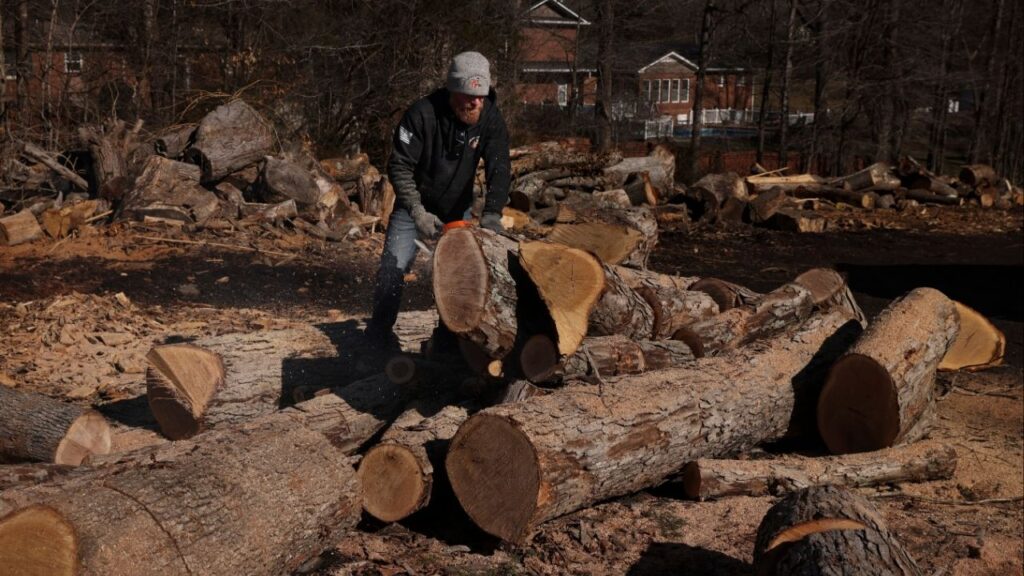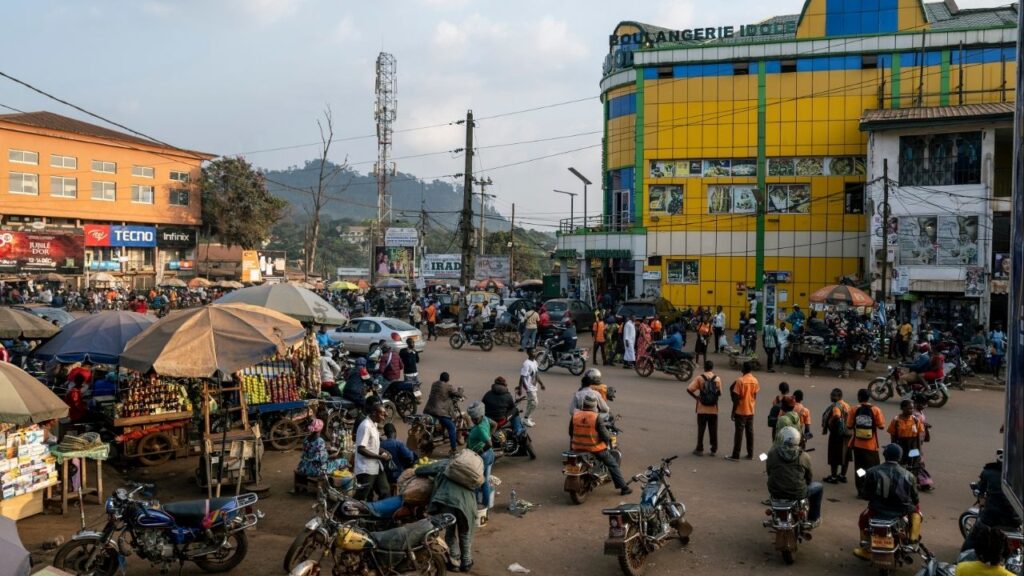Share
SIOUX FALLS, S.D. — When Martha Kebede’s adult sons immigrated from Ethiopia and reunited with her in South Dakota this year, they had few work opportunities.
Lacking English skills, the brothers took jobs at Smithfield Foods’ Sioux Falls pork plant, grueling and increasingly risky work as the coronavirus sickened thousands of meatpacking workers nationwide. One day half the workers on a slicing line vanished; later the brothers tested positive for the COVID-19 virus.
“It was very, very sad,” Kebede said. “The boys teared up seeing everyone.”
The brothers — who declined to be identified for fear of workplace retaliation — are among roughly 175,000 immigrants in U.S. meatpacking jobs. The industry has historically relied on foreign-born workers — from people in the country illegally to refugees — for some of America’s most dangerous jobs.
Now that reliance and uncertainty about a virus that’s killed at least 20 workers and temporarily shuttered several plants fuels concerns about possible labor shortages to meet demand for beef, pork and chicken.
Companies struggling to hire before the pandemic are spending millions on fresh incentives. Their hiring capability hinges on unemployment, industry changes, employees’ feelings about safety, and President Donald Trump’s aggressive and erratic immigration policies.
Trump has restricted nearly all immigration, but his administration recently granted seasonal workers 60-day extensions, affecting a smattering in meat and poultry.
Roughly 350 foreign workers were certified for meat and poultry gigs in 2019, according to Daniel Costa at the Economic Policy Institute. Such H-2B visa holders, capped at 66,000 annually, are commonly used in landscaping and resorts.
But there’s been willingness to expand. A plan to add 35,000 seasonal workers — which Trump supports in tight labor markets — was suspended in April for “present economic circumstances.”
Immigrants make up nearly 40% of the industry’s roughly 470,000 workers, with higher concentrations in states like South Dakota, where they are 58% of workers, and Nebraska, where they’re 66%, according to the nonprofit Migration Policy Institute. Estimates on illegal immigrants vary from 14% to the majority at some plants.
Most Jobs Are Rural, Limiting Workers’ Access to Lawyers
The industry argues it offers ample jobs with benefits and opportunities to advance for all workers. Paulina Francisco said her 21 years at Smithfield in Sioux City, Iowa, helped her buy a home, something she didn’t think possible when she immigrated from Guatemala. She’s now a citizen.
Still, most jobs are rural, limiting workers’ access to lawyers, favorable union laws and other jobs. Hourly pay averages as low as $12.50 for backbreaking work, often conducted side-by-side. Workers in the country illegally fear deportation for speaking up.
“Vulnerable populations work well for them,” Joshua Specht, a University of Notre Dame professor, said of the industry.
Chicken plants extensively recruited immigrants in the 1990s as union organizing among majority African American workers increased. One Morton, Mississippi, plant advertised in Miami’s Cuban stores and newspapers, busing workers willing to accept lower wages, a tactic replicated across the South, according to University of North Carolina-Chapel Hill anthropologist Angela Stuesse.
Initially, it was immigrants with work authorization, but they were replaced by Mexicans and Guatemalans here illegally. Argentinians, Uruguayans and Peruvians followed. By the 2000s, the labor pool was self-sustaining with word-of-mouth.
“This is part of the way this industry works, is by having these different communities they can lean into to keep costs down and keep the lines running,” said Stuesse.
One window into the industry’s response to sudden labor shortages is immigration raids.
In 2006, agents swept Swift & Co. plants, netting 1,300 arrests, the largest single-worksite raid in U.S. history.
Full production resumed within months. One Greeley, Colorado, plant offered more pay, hiring about 75 workers, mainly U.S. citizens and Somali refugees, according to the Center for Immigration Studies, which supports restricting immigration.
Today, meatpacking has the fifth-highest concentration of refugee workers, according to the nonprofit Fiscal Policy Institute.
Sudanese refugee Salaheldin Ahmed, 44, heard about Smithfield’s jobs while in New Hampshire and moved to South Dakota six years ago. After escaping war, little fazes the forklift driver, not even a positive COVID-19 test.
Data Suggests Raids May Temporarily Decrease Immigrant Hiring
“They were killing in front of you,” Ahmed, who experienced mild symptoms, said of atrocities he once witnessed. “The coronavirus is nothing.”
Some data suggests raids may temporarily decrease immigrant hiring.
Noncitizens comprised 52% of meatpacking in 2006, dropping to 42% by 2008, according to Michael Clemens at the Center for Global Development. He cited an annual March employment survey.
But that trend reversed during the Great Recession’s high unemployment. By 2011, noncitizens were roughly 56%.
After raids last year on Mississippi poultry plants, some citizens were hired but many immigrants returned to work, according to activists and local leaders.
“There is a need of workers and they don’t have any other possibilities,” said Rev. Roberto Mena, whose Forest congregation includes poultry workers.
Koch Foods and Peco Foods, the largest companies targeted, didn’t return messages. Both have touted use of the federal E-Verify system to confirm worker eligibility.
Some blame the business model. With rapid turnover, it’s not uncommon for plants to rehire an entire workforce annually, says worker advocate National Employment Law Project.
“This is the industry’s own short-sightedness,” said Debbie Berkowitz, a director. “They want to look for workers they can exploit, rather than workers that would feel comfortable raising concerns.”
After the outbreak closed several plants, they got Trump’s help; he issued an order classifying meat processing as critical.
The North American Meat Institute estimates most plants are at 70% production. Many added plexiglass barriers and other protections.
Little, the institute spokeswoman, noted that many meatpacking companies continued to pay employees even when plants shuttered and suggested more people might be drawn to meatpacking amid high unemployment.
“There’s so many unknowns,” she said. “I don’t know what’s in store for us.”
The pandemic has accelerated some workers’ decisions.
Guadalupe Paez, 62, likely won’t return to his job cleaning cattle at JBS Packerland in Green Bay, Wisconsin, after being hospitalized for COVID-19. Weaker, he fears more illness, says his daughter Dora Flores. Paez immigrated from Mexico through a 1980s guest worker program and obtained a green card.
“He only goes out for the doctor appointments,” she said. “He’s traumatized.”



















